Politics
/ArcaMax

Jack Smith says Trump allies were willing to testify against him
Political allies of Donald Trump were willing to testify against him in cases brought by the U.S. Justice Department, according to former Special Counsel Jack Smith.
Smith said that fellow Republicans were willing to cooperate with the investigation into Trump’s attempts to overturn the results of the 2020 election in a 255-page transcript ...Read more

President Donald Trump says he's dropping push for National Guard in Chicago -- for now
President Donald Trump said he’s dropping — for now — his push to deploy National Guard troops in Chicago, Los Angeles and Portland, Oregon, a move that comes after legal roadblocks hung up the effort.
Trump said in a social media post Wednesday that he’s removing the Guard troops for now. “We will come back, perhaps in a much ...Read more

Trump administration retreats in Newsom lawsuit over National Guard deployment
The Trump administration backed off its effort to block a court order returning control of National Guard troops in Los Angeles to California Gov. Gavin Newsom.
In a brief filing with the U.S. Court of Appeals for the 9th Circuit on Tuesday, Justice Department lawyers said they no longer oppose lifting a partial administrative stay and formally...Read more
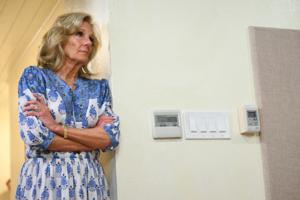
Wife of Jill Biden's ex-husband found dead after 'domestic dispute' call
The wife of former first lady Jill Biden’s ex-husband was found dead in the couple’s living room by police responding to a domestic dispute call, authorities in Delaware said Tuesday.
Police found Linda Stevenson, 64, “unresponsive in the living room” around 11:16 p.m. Sunday and “immediately administered life-saving measures,” the ...Read more

Trump issues first vetoes of second term
WASHINGTON – The president vetoed measures that were seen as largely noncontroversial, with both easily passing the Senate before the Christmas holiday break. But in one case, the president made clear that the veto was related to opposition to his agenda.
The bill in question pertains to land use rights for a Native American tribe in South ...Read more

Commentary: The Supreme Court finally pushed back against Trump
In one of its most consequential rulings of the year, just before breaking for the holidays last week the Supreme Court held that President Donald Trump acted improperly in federalizing the National Guard in Illinois and in activating troops across the state. Although the case centered on the administration’s deployments in Chicago, the court�...Read more

Commentary: The foreign policy moves Donald Trump got right in 2025
For President Donald Trump’s supporters, 2025 has been a year of transformation. For his opponents, it’s been nothing short of a long nightmare. The holiday season is a perfect time to look back, reflect and remember the consequential moments of the past year.
As human beings, we generally fixate on the negative. Indeed, there are a ton of ...Read more

Commentary: The Venezuelan 'threat' is all Trumped up
I know boats. Catamarans where water laps at your legs. Fishing boats with bright colors and splintered seats. Even though I grew up in the heart of Silicon Valley in San José, California, I come from a line of Venezuelans who were fed by the ocean. And, like all the fishermen before him, my father’s sunworn skin smelled of salt.
My father ...Read more
Former Rep. Dick Schulze, who represented the Philly burbs in Congress for 18 years, has died at 96
Former U.S. Rep. Richard "Dick" Schulze, a Republican who represented the Philadelphia suburbs from 1975 until 1993, died last week at the age of 96.
Mr. Schulze, who served in the Pennsylvania General Assembly before running for Congress, died of heart failure in his home in the Washington, D.C., area on Dec. 23, according to a news release ...Read more
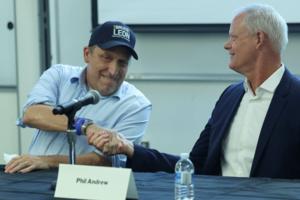
9th Congressional District candidate Bruce Leon dropping out of Democratic primary after AIPAC pressure
A candidate in the crowded Democratic primary to replace retiring U.S. Rep. Jan Schakowsky said Tuesday he plans to drop out of the race following a pressure campaign from AIPAC, an influential but controversial pro-Israel lobbying organization.
The development appears to be a boon to state Sen. Laura Fine, another Democratic candidate who ...Read more

Guinea's junta leader cements rule with landslide election win
Guinea’s military leader Mamadi Doumbouya won a widely expected victory in Dec. 28 elections from which several opposition figures were barred from running.
Doumbouya, who seized power in a 2021 coup, secured 86.7% of the vote, according to preliminary results from the General Directorate of Elections.
Standing under the banner of the ...Read more

Idaho senators urge President Trump to reverse course on marijuana policy change
Idaho’s U.S. senators have sounded the alarm with President Donald Trump over his recent decision to relax federal marijuana restrictions.
Republicans Mike Crapo and Jim Risch each signed a letter sent to Trump opposing his executive order this month that directs reclassification of marijuana to a lower-level drug in the U.S. Initial word of ...Read more
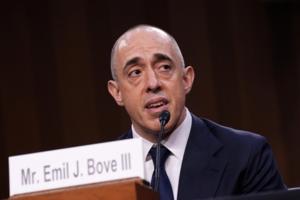
Trump's 2025 saw 26 lifetime judicial nominees approved
WASHINGTON — President Donald Trump will end 2025 behind on judicial confirmations compared to the pace of predecessor Joe Biden, but ahead of the rate Trump set during the first calendar year of his previous term in the White House.
With 53 seats, majority Republican senators had wide latitude to confirm the administration’s picks for the ...Read more

Trump tramples on a cherished monument
Susie Wiles was right about one thing.
In a revealing Vanity Fair article, President Donald Trump’s chief of staff said he thinks “there’s nothing he can’t do. Nothing. Zero. Nothing.”
Trump confirmed it by having his handpicked board rename one of the nation’s most cherished memorials “The Donald J. Trump and the John F. Kennedy...Read more
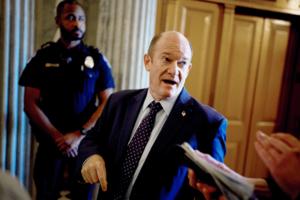
Defense panels still not clear on Golden Dome's attributes
WASHINGTON – Seven months after President Donald Trump announced plans for a Golden Dome missile shield for America, lawmakers who oversee the Pentagon say they have yet to learn meaningful information about the system’s attributes, cost or schedule.
Trump said in May that the system’s so-called architecture had been “officially ...Read more

The court obeys the law -- Supreme Court hands Trump rare defeat on National Guard deployment to Chicago
Last week the Supreme Court gave the country one notable gift in blocking the Trump administration’s efforts to deploy the National Guard to Chicago, part of a campaign of intimidation that has seen troops deploy now to various (invariably heavily Democratic) areas.
Six justices said no to Trump, Chief John Roberts, Sonia Sotomayor, Elena ...Read more
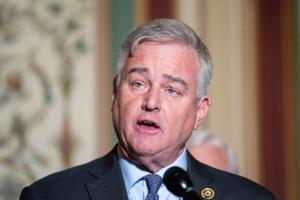
These former members of Congress are seeking comebacks in 2026
For all the lawmakers who’ve announced plans to retire from congressional service this year, there’s a long list of former members from both parties who want to be back in Congress.
They range from former lawmakers whose terms ended only a year ago to ex-members who’ve been out of the political spotlight for more than a decade.
Here’s...Read more
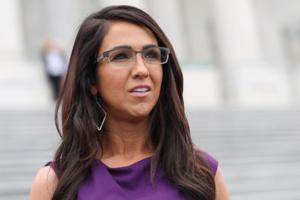
GOP lawmakers have administration ally to end predator species protections
WASHINGTON — As congressional Republicans push to delist gray wolf and grizzly bear populations from Endangered Species Act protections, they now have an ally in the administration who has taken a skeptical view of the law designed for the purpose.
U.S. Fish and Wildlife Director Brian Nesvik, who was confirmed in August, has advocated ...Read more
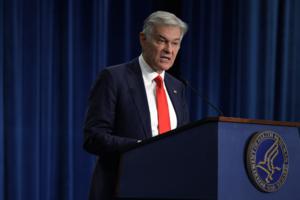
Gender-affirming care rules create legal quagmire, critics say
WASHINGTON — Trump administration proposals that would sharply limit pediatric gender-affirming care could face a host of legal challenges if implemented, from accusations of overriding the state regulation of Medicaid to undermining Congress, lawyers and civil rights groups say.
Accusations of subverting the will of Congress have been common...Read more

Trump team tramples church-state divide
The Frances Perkins Building in Washington, D.C., serves as the headquarters of the U.S. Department of Labor. Its dedicated employees implement and enforce labor laws passed by Congress. It’s not a church, or a synagogue, and its mission is not to serve or praise any religious deity. But if you stopped in at the Cesar Chavez auditorium on Dec....Read more
Popular Stories
- Defense panels still not clear on Golden Dome's attributes
- The court obeys the law -- Supreme Court hands Trump rare defeat on National Guard deployment to Chicago
- Trump tramples on a cherished monument
- Idaho senators urge President Trump to reverse course on marijuana policy change
- 9th Congressional District candidate Bruce Leon dropping out of Democratic primary after AIPAC pressure




















































